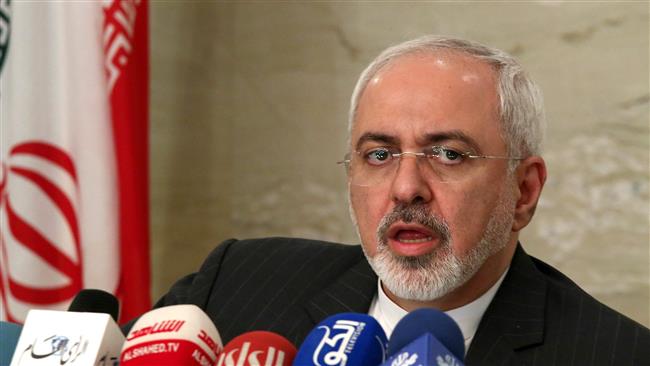Iran’s foreign minister has warned against efforts likely to cause destabilization throughout the Middle East, saying such instability would affect all countries in the region.
“Iran’s priority has, from the beginning, been having good and strong relations with its neighbors,” Mohammad Javad Zarif wrote in an article, published simultaneously in four Arabic newspapers, Egypt’s Al-Shorouk, Lebanon’s As-Safir, Kuwait’s Al Rai, and Qatar’s Al Sharq.
Iran cannot remain indifferent towards the profound destruction around it, he stated, adding, “Experience tells us that instability and unrest know no boundaries.”
Citing a case in point, the senior Iranian diplomat said extremist and violent groups such as the ISIL cannot be rooted out in Iraq while they are effectively expanding in Yemen and Syria.
Zarif’s article comes against the backdrop of ISIL’s acts of terror in Iraq and Syria and Saudi Arabia’s unabated bombardment of Yemen purportedly targeting the Houthi Ansarullah movement, which is fighting extremists in the country.
Zarif reiterated Iran’s proposed four-point plan for the resolution of the crisis in Yemen, which calls for an immediate ceasefire, delivery of humanitarian aid to Yemeni civilians, facilitation of dialogue among the groups inside the country, and finally creation of a broad-based national unity government.
“A similar plan was proposed two years ago [by the Islamic Republic] following consultation with some neighbors and other [regional] actors for the restoration of peace and stability to Syria,” the article read.
Nuclear agreement
Zarif also hailed the conclusion in the Austrian capital Vienna last month of marathon nuclear negotiations between Iran and the P5+1 group of countries — the United States, Britain, France, China, Russia and Germany.
The development, he said, “was a necessary start for the region, and not only is not against the interests of any of our neighbors, but is an achievement for the entire region as it ended an unnecessary and 12-year-long tension, which threatened our region more than anywhere else.”
Iran’s Zarif highlights ties with Iraq in all fields
 On the other hand, Iranian Foreign Minister Mohammad Javad Zarif says Tehran attaches great importance to its relations with neighboring Iraq in all arenas.
On the other hand, Iranian Foreign Minister Mohammad Javad Zarif says Tehran attaches great importance to its relations with neighboring Iraq in all arenas.
“Iran and Iraq have special relations which I hope will be developed and boosted in all areas. The Iraqi government and nation have a special status for us,” Zarif said in a meeting with Rajeh Saber Abboud al-Mousavi, the new Iraqi ambassador to Tehran, on Sunday.
The senior Iranian official also called for further promotion of Tehran-Baghdad ties on all fronts.
He also called for facilitating the business of Iranian merchants and investors in Iraq.
Last month, Zarif visited Iraq as part of his three-nation tour of the Middle East which also took him to Kuwait and Qatar.
 In Iraq, the senior Iranian official met and held talks with Iraqi religious figures and political authorities, including Grand Ayatollah Ali al-Sistani, Prime Minister Haider al-Abadi, President Fuad Masum, Parliament Speaker Salim al-Jabouri and Foreign Minister Ibrahim al-Jaafari.
In Iraq, the senior Iranian official met and held talks with Iraqi religious figures and political authorities, including Grand Ayatollah Ali al-Sistani, Prime Minister Haider al-Abadi, President Fuad Masum, Parliament Speaker Salim al-Jabouri and Foreign Minister Ibrahim al-Jaafari.
Iranian officials have always stressed the importance of relations with the Islamic Republic’s neighbors, including Iraq.
In July, Iranian President Hassan Rouhani told the visiting Iraqi premier that the Islamic Republic will continue supporting Iraq in its fight against terrorism, noting that the country’s security is intertwined with that of Iran.
Rouhani also said that stability, security, and peace in Iraq and Iran’s other neighbors can help promote progress and development in the region.
PRESS T.V
R.S

